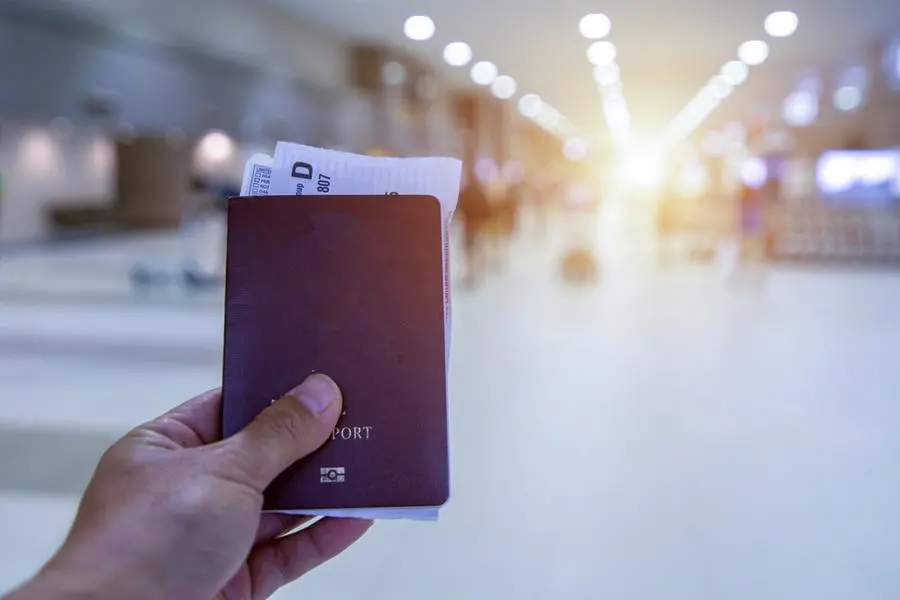PHOTO
If soaring summer airfares see you break out in a cold sweat, it’s probably because demand for air travel has yet to wane in a post-Covid world. No amount of number crunching and cutting corners will change the fact that passengers are far from satiated despite last year’s frenzied revenge travel that saw more than 900 million tourists travel internationally, according to the UN World Tourism Organization (UNWTO).
As summer 2023 looms on the horizon, it shouldn’t come as a surprise that your best efforts to be flexible on dates, airports and even destinations still won’t fetch you a bargain.
The good news, though, is that there are still ways to plan for that dream holiday with a strict budget in mind while playing smart and factoring in contingencies along the way.
Planning is Key
“It is essential to financially plan for a holiday, even more so when budgets are tight and there is uncertainty surrounding the economy,” says Dubai-based financial expert Sophia Bhatti, founder and CEO of Wimbledon Wealth.


According to her, while revenge travel may appear tempting, it is crucial for those with financial constraints to set out with a ‘realistic’ budget. “This means considering all expenses, including transportation, accommodation, food, activities, and any additional expenses,” she explains, adding that unexpected costs and setting aside a contingency fund should be taken into account as well.
“Start saving early for the trip by setting aside a small amount each month,” Bhatti advises, adding that such steps allow one to accumulate funds without putting a strain on finances in the short-term.
Be Flexible
Since the end of Covid restrictions, the Middle East’s aviation sector has been rapidly gaining lost ground. Figures released by the International Air Transport Association in 2023 indicated that year-on-year traffic in this region almost doubled in January.
With demand continuing to peak and capacity still playing catch up, prices have fallen victim to economics.
“Availability continues to be a massive issue every summer, so the earlier you plan will help you find a price that fits your budget,” says Dubai-based travel counsellor Andrea Britchford.


With 25 years in the field, the industry veteran advises budget-conscious travellers to look beyond their comfort zone. “Peak season drivers are largely revenue-managed, which means when airlines notice there is spare capacity on certain flights, they will offer discounted fares to fill up those seats to bump up their earnings.
“Simply put, even if you choose to travel mid-week, the fares will record a minimal drop and will continue to remain in limited supply. This is where passengers need to look at alternatives such as low-cost carriers. Airlines like Wizz Air and Air Arabia are changing the landscape with their affordable pricing,” Britchford says.
Headquartered in Budapest, Wizz Air also operates out of its Abu Dhabi hub, offering direct connectivity to European destinations. At the time of writing, summer fares to popular cities such as Athens are averaging Dh3,600 for a family of four looking for a week-long vacation in July. Check-in luggage and seat selection comes at an additional cost.
Britchford further advises travellers to look beyond popular airport hubs. “Phuket is a popular summer destination for UAE travellers, but look at direct flights and they almost always cost a premium. Carriers like flydubai fly direct to Krabi at a lower fare, serving as a great alternative to Phuket, which is a boat ride away.”
Britchford also suggests getting flexible with travel dates and months, looking at the shoulder season for bargain deals, while also opting for less desirable red-eye flights and layovers, which can bring down the cost of airfares even further.
Travel Smart
Over the years, many airlines and travel agencies have also introduced additional incentives to save on expenses.
“We recently conducted consumer research in the UAE which highlighted [that] consumers wanted ‘flexibility at the time of booking’ and were concerned about ‘high cancellation charges’,” says Saujanya Shrivastava, Chief Operating Officer of Flights and Gulf Cooperation Council, MakeMyTrip.


In a market that is largely driven by last-minute planning, the online travel agency has introduced a price lock alternative for customers to “‘lock’ the flight price for about seven days, eliminating the stress of a fare hike,” according to Shrivastava.
Similarly, the company has also launched a price lock on hotel rates where customers pay Dh1 at the time of booking, allowing them to pay the full amount closer to their check-in date.
Shrivastava advises passengers to be on the lookout for special seasonal offers from travel companies and airlines as well as to make use of their credit card points or bank tie-ups to gain additional discounts.
Local banks are also offering cost savings through the help of multi-currency accounts. Sean Gilchrist, CEO of Nomo Bank, explains how his Shariah-compliant bank is helping customers take charge of their spending. “Every Nomo Bank account comes with multi-currency services through which customers have fee-free spending in the local currency. This means they can spend like a local without worrying about exchange rates and other fees,” says Gilchirst, adding that the currencies they offer includes US dollars, British pounds, euros and Saudi riyals.
Contingency Planning
While budget travellers may argue in favour of three-star convenience over five-star luxury, or vacation homes over hotel nights, experts have the edge when it comes to travel insurance.
“While pre-Covid quite a few countries did not mandate travel insurance, in the post-Covid era it has almost become an indispensable product,” states Neeraj Gupta, Chief Executive Officer, Policybazaar.ae.


While travel insurance is an additional cost, Gupta argues the extra dollar goes a long way in case of medical emergencies, trip delays and cancellations, protecting against loss of luggage or emergency evacuation.
“Travel Insurance is an investment and investing in a good one can provide peace of mind and protect you from unexpected financial losses,” Gupta says.
Bhatti also advises travellers to ensure their desire for a summer sojourn doesn’t ultimately land them in the red. “Taking on debt to fund a vacation may result in financial difficulties in the long run, so it is essential to evaluate the costs and benefits of such a decision carefully,” she says.
(Reporting by Bindu Rai; editing by Seban Scaria)





















